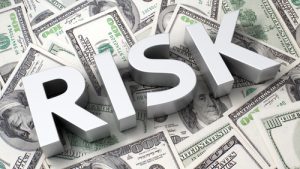QUESTION: Dear Martin Armstrong,
In your blog post “Liquidity Crisis & the Pending European Banking Crisis” Posted Oct 2, 2019 ” you write
‘Those in Europe who have a position in cash, it may be better to have shares or a private sector bond or US Treasury. Given the policy in Europe of no bailouts, leaving cash sitting in your account could expose you to risk in the months ahead.”
I am in England/Uk and I am lucky to be in the position of trying to buy an ‘average priced’ house with cash, therefore, I have money spread across a few UK banks. Should a person like myself be worried? You are the only person out there who I trust to have an impartial assessment because of the amazing work you have done with your computer Socrates. With the highest regard and many thanks from a concerned UK citizen.
ANSWER: As far as bank bailouts are concerned — no, they are separate as they will fall under separate central banks. However, prior to the crisis, structured trades were signed separately using negotiated ISDAs. Once they started trading through an exchange, it was London that won that mantle. So today, most derivatives are cleared in London and that is where the problem could ultimately lie.
In February, the BOE and the EU announced that European counterparties could trade in London and that ESMA (European Securities and Markets Authority) would immediately recognize the three London clearers (LCH, LME, and ICE). This is where London really lost its chance of separating itself from the mess. Because of this action, the market has maintained trade, but at what cost?
 There is a huge gap between the board of directors of banks and those who are actually trading. Consequently, even the big banks are clueless with respect to the hidden risks in the financial markets because of the interference of politicians.
There is a huge gap between the board of directors of banks and those who are actually trading. Consequently, even the big banks are clueless with respect to the hidden risks in the financial markets because of the interference of politicians.
The banks are not aware of the problem because their management are not traders. It was this action that relieves the bank’s board or clearers from running the risk that they run. Very few people will see this risk coming as ‘no-one’ looks at the amount of money that is proportioned to clearinghouses. The burden is expected to be borne by the clearers, but what happens if half the clearers all go at the same time?
The REPO market is where 2008 began. However, very few people even on a trading floor will see that as a risk and definitely no one on the board! It will not be until the NIM (Net Interest Margin) starts to underperform that questions will be asked at the board level. And as we know, by that time it is way too late.
Some do not understand why we even get called in because there is the presumption that bankers know what is going on. That is so far from the truth. Congress will call heads of banks to explain and testify, but they are only relaying what they have been told by others.
The trading desks in banks have to sell trades to management using fundamental explanations. It is akin to trying to explain a trade to freshman students in high school with no experience. There is just a major gap between the levels even within major banks.
One of the top 10 banks was having an international internal meeting about the problems in markets. Two offices insisted we be there to address the meeting. They paid our fees and everything, but at the last minute the senior board said no, they did not want to air the problems in front of an outside firm. That’s what I mean when I say we never get called in to avoid a crisis, only when the crisis hits. Then the trading side of the banks wants us to come in because then they hope the boards will listen to us rather than them who they want to blame for everything.
